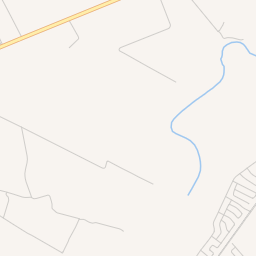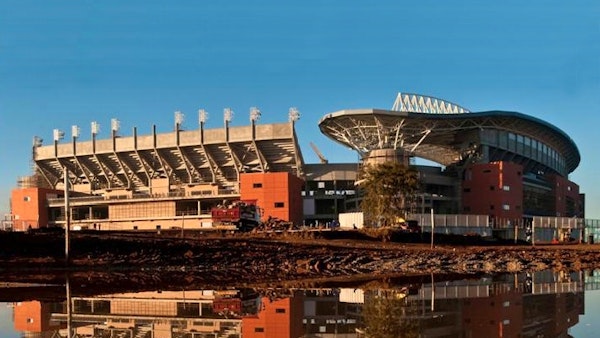Peter Mokaba Stadium
Description
The Peter Mokaba Stadium is a football and rugby stadium in Polokwane (formerly Pietersburg), in the Limpopo province. With a seating capacity of 45 000, it is one of five stadiums that were built for the 2010 FIFA World Cup.
The stadium is named after Peter Mokaba (1959-2002), a former leader of the ANC Youth League and hero of the struggle against apartheid who was imprisoned on Robben Island. Facilities include sports fields, office suites, function rooms, a conference centre, exhibition centre, and restaurant.
The crisp, modern design of the stadium was inspired by the ancient baobab tree that is revered by the local population. At each corner of the steel and concrete structure is a squat, cylindrical structure that resembles the tree's muscular trunk which can grow up to 28m in girth. The aerodynamic roof on the west side is designed to flex up to 40cm in high winds that frequently accompany the summer rainfall.
Highlights at Peter Mokaba Stadium:
• The first event at the stadium was the Peter Mokaba Cup, held on 23 January 2010. It was a 4 team, friendly tournament, which served as the stadium's opening event.
• The first international game played at the stadium was the international friendly between South Africa and Guatemala on 31 May 2010, which South Africa won 5–0.
• The stadium hosted its first competitive football match on 20 November 2010 when Kaizer Chiefs opted to host their 2010/11 Telkom Knockout semi-final against Santos at the stadium. The match ended 1–0 to Kaizer Chiefs.
• The stadium hosted its first rugby union match on 30 January 2010. The match was a Super 14 warm up match, played for the Xerox Cup. It was contested by the Bulls and Lions.
• The stadium proudly hosted four 2010 FIFA World Cup games: Algeria vs Slovenia on 13 June, France vs Mexico on 17 June, Greece vs Argentina on 22 June and Paraguay vs New Zealand on 24 June.
Map







































































































Nearby Attractions
Click here to see more accommodation options
You may also be interested in browsing our selection of accommodation in Polokwane or reading about Polokwane



